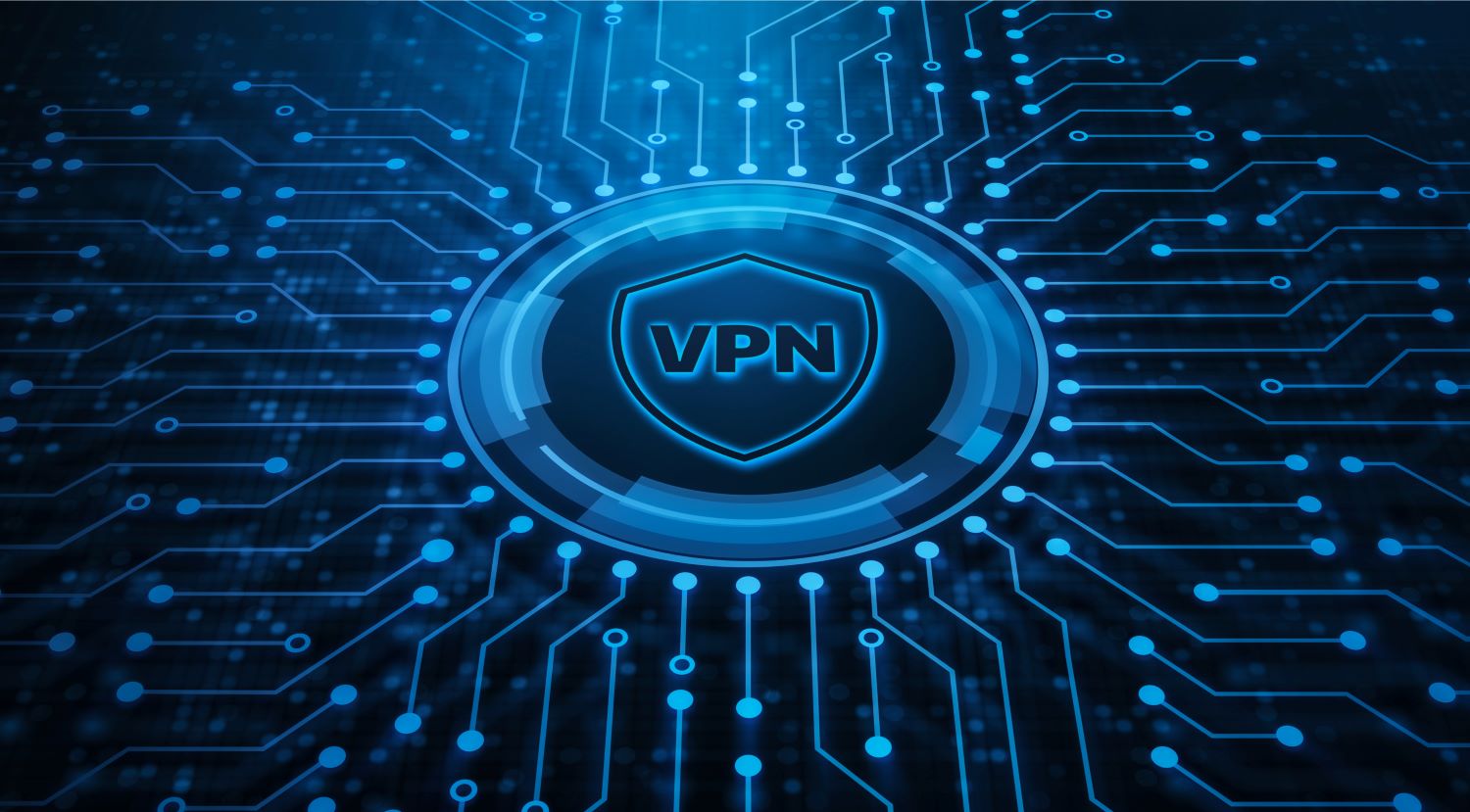In today’s digital age, the internet has become an integral part of our daily lives. From shopping and banking to social networking and entertainment, we rely on the internet for nearly everything. However, with this increased connectivity comes a heightened risk to our privacy and security. Cyber threats, data breaches, and online surveillance have become all too common, making it essential to take proactive steps to protect our personal information.
One of the most effective tools for safeguarding your online presence is a Virtual Private Network, or VPN. A VPN not only enhances your security but also offers a range of other benefits, such as bypassing geo-restrictions and ensuring anonymity. This comprehensive guide aims to demystify VPNs, explaining what they are, how they work, and why they are crucial for anyone who values their online privacy and security.
Whether you’re new to the concept of VPNs or looking to deepen your understanding, this guide will provide you with all the information you need to make an informed decision about using a VPN. By the end, you’ll have a clear grasp of the advantages VPNs offer and how to choose the right one for your needs. Let’s dive into the world of VPNs and discover how they can transform your online experience.
What is a VPN?
Definition of a VPN
A Virtual Private Network (VPN) is a technology that creates a secure, encrypted connection over a less secure network, such as the internet. VPNs are used to protect your online activities from eavesdropping, interference, and censorship, effectively creating a private tunnel for your data.
Basic Explanation of How a VPN Works
At its core, a VPN works by routing your device’s internet connection through a VPN server rather than directly connecting to the internet. Here’s a step-by-step breakdown of how it operates:
- Connection Initiation: When you connect to a VPN, you start by launching a VPN client on your device. This client will establish a connection to a VPN server operated by the VPN service.
- Encryption of Data: Once the connection is initiated, all your internet traffic is encrypted. This means that any data sent from your device is converted into a secure format that cannot be easily read by unauthorized entities.
- Tunneling: The encrypted data is then transmitted through a secure tunnel to the VPN server. This tunnel ensures that your data is protected from potential threats as it travels over the internet.
- Decryption and Forwarding: Upon reaching the VPN server, your data is decrypted and forwarded to its intended destination (e.g., a website or online service). The response from this destination is sent back to the VPN server, where it is encrypted again and sent through the secure tunnel back to your device.
- Data Reception: Finally, the VPN client on your device decrypts the data so that you can access the information in its original form.
Encryption of Internet Traffic
Encryption is a fundamental component of how VPNs ensure your data’s security. VPNs use sophisticated encryption algorithms to scramble your data into an unreadable format. Common encryption standards include AES-256, which is considered highly secure and is widely used across various industries for protecting sensitive information.
Tunneling Protocols
VPNs utilize various tunneling protocols to create and maintain secure connections. These protocols define how data is encrypted and transmitted between your device and the VPN server. Some of the most common tunneling protocols include:
- OpenVPN: An open-source protocol known for its balance between speed and security. It is highly configurable and widely supported.
- L2TP/IPsec (Layer 2 Tunneling Protocol with Internet Protocol Security): Provides strong encryption and is often used in conjunction with IPsec for enhanced security.
- WireGuard: A newer protocol that aims to provide better performance and simplicity compared to older protocols.
- IKEv2/IPsec (Internet Key Exchange version 2): Known for its speed and stability, especially useful for mobile devices due to its ability to handle network changes seamlessly.
VPN Servers and IP Masking
When you connect to a VPN, your internet traffic is routed through a VPN server. This server assigns you a new IP address, masking your original IP address and making it appear as though you are browsing from the server’s location. This process enhances your online anonymity and allows you to bypass geographical restrictions by making it seem like you are accessing the internet from a different country.
Historical Context: The Evolution of VPNs
The concept of VPNs dates back to the mid-1990s when the need for secure, remote access to corporate networks arose. Microsoft’s PPTP (Point-to-Point Tunneling Protocol) was one of the earliest implementations of VPN technology, designed to provide a secure connection for remote employees.
Over time, as the internet evolved and the demand for online privacy increased, VPN technology expanded beyond corporate use. The rise of e-commerce, online banking, and the increasing prevalence of cyber threats highlighted the need for secure internet connections for individual users.
In the early 2000s, VPN services began to emerge for personal use, offering enhanced privacy and security for everyday internet activities. The introduction of stronger encryption methods and more robust tunneling protocols improved the effectiveness and reliability of VPNs.
Today, VPNs are widely used by individuals and organizations alike to protect sensitive data, ensure privacy, and bypass censorship and geo-restrictions. The technology continues to evolve, with new protocols and features being developed to meet the growing demands of a connected world.
How Does a VPN Work?
Step-by-Step Explanation of VPN Operation
Understanding how a VPN works involves looking at the process in detail, from the moment you initiate the connection to the final delivery of your data. Here’s a comprehensive breakdown of each step in the VPN operation:
1. Connection Initiation by the User
The process begins when you open your VPN client application on your device. This application could be on your computer, smartphone, tablet, or even your router. You select a VPN server from the list provided by your VPN service. Once you hit the “connect” button, the client initiates a connection request to the chosen VPN server.
2. Encryption of Data on the User’s Device
Before any data leaves your device, the VPN client encrypts it. Encryption transforms your data into a secure format that is unreadable without the appropriate decryption key. This step is crucial as it ensures that even if someone intercepts your data, they won’t be able to decipher it.
3. Data Transmission Through a Secure Tunnel
The encrypted data is then transmitted from your device to the VPN server through a secure tunnel. This tunnel is established using tunneling protocols (such as OpenVPN, L2TP/IPsec, or WireGuard), which encapsulate your data packets in additional layers of security. This tunnel protects your data from being accessed or tampered with as it travels over the internet.
4. Decryption at the VPN Server
When the encrypted data reaches the VPN server, it is decrypted back into its original form. The VPN server has the necessary decryption key to convert the data back to a readable format. This decryption process is essential for the server to understand and properly route your data to its final destination.
5. Forwarding of Data to the Final Destination
After decryption, the VPN server forwards the data to its intended destination, such as a website, streaming service, or online application. From the perspective of the destination server, the request appears to originate from the VPN server’s IP address rather than your actual IP address. This masking of your IP address helps protect your identity and location.
The response from the destination server follows the reverse path: it is sent back to the VPN server, which then encrypts it and transmits it through the secure tunnel to your device. Your VPN client decrypts the data once it reaches your device, allowing you to access the content in its original form.
Illustration of a Typical VPN Connection Setup
To better visualize how a VPN works, consider the following diagram:
[Your Device] --(1. Connection Initiation)--> [VPN Client]
|
v
[Encrypted Data] --(2. Data Transmission through Secure Tunnel)--> [VPN Server]
|
v
[Decryption] --(3. Forwarding to Final Destination)--> [Destination Server]
|
v
[Response Data] --(4. Transmission through Secure Tunnel)--> [VPN Server]
|
v
[Encryption] --(5. Decryption at Your Device)--> [Your Device]In this setup:
- Your Device: You start by initiating a connection from your device using the VPN client.
- VPN Client: The VPN client encrypts your data and sends it through a secure tunnel.
- VPN Server: The VPN server decrypts the data, forwards it to the final destination, receives the response, encrypts it again, and sends it back through the secure tunnel.
- Destination Server: The website or service you are accessing only sees the request coming from the VPN server, not your actual IP address.
- Your Device (again): The encrypted response is received by your VPN client, which decrypts it so you can view the content.
This entire process happens seamlessly and within milliseconds, allowing you to browse the internet securely and privately without noticeable delays.
Types of VPNs
VPNs come in different types, each designed to meet specific needs and use cases. Understanding these types can help you choose the right VPN for your particular requirements. Here, we will explore three main types of VPNs: Remote Access VPN, Site-to-Site VPN, and Personal VPN.
Remote Access VPN
Explanation
A Remote Access VPN allows individual users to connect to a private network and access its resources remotely over the internet. This type of VPN is typically used by employees who need to connect to their company’s internal network from outside the office, such as from home, a hotel, or any other remote location. The VPN client software on the user’s device establishes a secure connection to a VPN server, which grants access to the company’s network.
Use Cases
- Telecommuting: Employees working from home can securely access company files, applications, and resources as if they were physically present in the office.
- Traveling: Business travelers can securely connect to their corporate network from any location, ensuring access to necessary resources while maintaining security.
- BYOD (Bring Your Own Device): Organizations allowing employees to use personal devices for work can secure these devices by requiring a VPN connection to access company resources.
Site-to-Site VPN
Explanation
A Site-to-Site VPN, also known as a Router-to-Router VPN, connects multiple networks located at different sites into a single, cohesive network. This type of VPN is commonly used by businesses with multiple office locations that need to share resources and communicate securely over the internet. Each site has a VPN gateway (usually a router or dedicated hardware device) that establishes a secure connection with the gateway at the other site.
Use Cases
- Multi-Branch Companies: Organizations with multiple offices in different locations can use Site-to-Site VPNs to connect their local networks, facilitating secure data exchange and communication.
- Partner Networks: Businesses collaborating with external partners can set up Site-to-Site VPNs to enable secure and seamless access to each other’s networks.
- Mergers and Acquisitions: Companies undergoing mergers or acquisitions can integrate their IT infrastructures securely through Site-to-Site VPNs.
Personal VPN
Explanation
A Personal VPN is designed for individual users who want to enhance their online privacy, security, and freedom. Unlike Remote Access VPNs, which are typically used for accessing a specific private network, Personal VPNs focus on protecting the user’s internet connection, regardless of the network they are connected to. Users connect to a VPN server provided by a VPN service, which encrypts their internet traffic and masks their IP address.
Use Cases
- Privacy Protection: Users concerned about online privacy can use a Personal VPN to hide their IP address and encrypt their internet traffic, making it difficult for ISPs, hackers, and other entities to track their online activities.
- Security on Public Wi-Fi: Personal VPNs are essential for users who frequently connect to public Wi-Fi networks (e.g., in cafes, airports, or hotels), protecting their data from potential cyber threats on these unsecured networks.
- Bypassing Geo-Restrictions: Users can access content that is restricted based on geographic location (such as streaming services, websites, and social media) by connecting to VPN servers in different countries.
- Censorship Circumvention: Individuals living in or traveling to countries with strict internet censorship can use Personal VPNs to bypass government-imposed restrictions and access the free internet.
Benefits of Using a VPN
Using a VPN offers numerous advantages, enhancing your online privacy, security, and overall internet experience. Here are some of the key benefits:
Privacy Protection
How VPNs Mask IP Addresses
When you connect to a VPN, your internet traffic is routed through a VPN server, which assigns you a new IP address. This process masks your original IP address, making it appear as though your internet activity is originating from the VPN server’s location. By hiding your real IP address, a VPN protects your identity and location from websites, advertisers, and other third parties that might attempt to track you.
Protection from ISP Tracking and Surveillance
Internet Service Providers (ISPs) can monitor and log your online activities, potentially sharing this data with advertisers, government agencies, or other entities. A VPN encrypts your internet traffic, preventing your ISP from seeing which websites you visit or what data you transmit. This ensures that your online activities remain private and secure from ISP surveillance.
Security
Encryption Standards
VPNs use advanced encryption standards to secure your data. One of the most common and trusted encryption methods is AES-256 (Advanced Encryption Standard with 256-bit keys). This level of encryption is highly secure and is used by governments, financial institutions, and security professionals to protect sensitive information. With AES-256, your data is virtually impenetrable to cybercriminals and other malicious entities.
Protection on Public Wi-Fi Networks
Public Wi-Fi networks, such as those in cafes, airports, and hotels, are notoriously insecure and are prime targets for hackers. When you connect to a public Wi-Fi network using a VPN, your data is encrypted, making it much harder for cybercriminals to intercept and steal your information. This protection is crucial for safeguarding sensitive data, such as login credentials, financial information, and personal communications.
Access to Restricted Content
Bypassing Geo-Blocks and Censorship
Many websites and online services restrict access based on geographic location, a practice known as geo-blocking. Additionally, some countries impose censorship, blocking access to certain websites and content. A VPN allows you to bypass these restrictions by connecting to servers in different countries. This way, you can access content that is otherwise unavailable in your region, ensuring a free and open internet experience.
Streaming Services and Content Availability
Streaming services like Netflix, Hulu, and BBC iPlayer often have different content libraries for different countries. By using a VPN, you can connect to a server in a country where the desired content is available, effectively expanding your streaming options. This ability to bypass regional restrictions allows you to enjoy a wider variety of movies, TV shows, and other media.
Anonymity
How VPNs Can Help Keep Your Online Activities Anonymous
A VPN enhances your anonymity by masking your IP address and encrypting your internet traffic. This makes it much more difficult for websites, advertisers, and other entities to track your online activities and build a profile based on your browsing habits. Additionally, many reputable VPN services have strict no-log policies, meaning they do not store any information about your online activities, further ensuring your anonymity.
Improved Performance
Potential Benefits for Gaming and P2P Activities
While VPNs are primarily used for privacy and security, they can also improve performance in certain scenarios:
- Gaming: VPNs can reduce latency and ping times in online gaming by providing a more direct route to gaming servers. This can result in smoother gameplay and a better overall gaming experience.
- P2P Activities: VPNs are beneficial for peer-to-peer (P2P) activities, such as file sharing and torrenting. By masking your IP address and encrypting your data, a VPN protects your identity and ensures your activities remain private. Additionally, some ISPs throttle bandwidth for P2P traffic; using a VPN can help bypass these restrictions, improving download and upload speeds.
Potential Drawbacks of VPNs
While VPNs offer numerous benefits, there are also potential drawbacks that users should be aware of. Understanding these limitations can help you make an informed decision about whether a VPN is right for you and how to choose the best service.
Speed Reduction
Explanation of How Encryption and Server Distance Can Affect Speed
One of the primary drawbacks of using a VPN is the potential reduction in internet speed. Several factors contribute to this slowdown:
- Encryption Overhead: VPNs encrypt your data before sending it through the secure tunnel to the VPN server. This encryption process adds an extra layer of processing, which can slow down your connection. Stronger encryption (such as AES-256) provides better security but requires more processing power, potentially reducing speed further.
- Server Distance: The physical distance between your device and the VPN server can significantly impact speed. The farther the server is from your location, the longer it takes for data to travel back and forth, leading to increased latency and slower connection speeds.
- Server Load: The number of users connected to a VPN server can affect performance. Overloaded servers may struggle to handle high traffic volumes, resulting in slower speeds for all connected users.
Cost
Discussion of Free vs. Paid VPN Services
Another potential drawback of VPNs is the cost. While there are free VPN services available, they often come with significant limitations and potential risks:
- Free VPN Services: Free VPNs typically offer limited bandwidth, slower speeds, and a smaller selection of servers. Additionally, they may display ads, collect and sell user data, or lack essential security features. Some free VPNs have been found to contain malware or other malicious software.
- Paid VPN Services: Paid VPNs generally provide better performance, more features, and stronger security. They offer a wider range of servers, higher speeds, and greater bandwidth. However, the cost of a reliable VPN service can vary, with premium services charging a monthly or yearly subscription fee. For users on a tight budget, this cost may be a deterrent.
Trust Issues
Importance of Choosing Reputable VPN Providers
Trust is a critical factor when selecting a VPN provider. Because a VPN service routes your internet traffic through its servers, you must trust that the provider will handle your data responsibly. There are several trust-related concerns to consider:
- Reputable Providers: Choosing a reputable VPN provider is essential to ensure your data is protected. Well-known providers with a proven track record of transparency, strong privacy policies, and positive user reviews are generally more trustworthy.
- Transparency and Accountability: Look for VPN providers that are transparent about their ownership, location, and policies. Providers that undergo independent security audits and publish transparency reports are more likely to be reliable and trustworthy.
Potential for Data Logging and Misuse by VPN Companies
- Data Logging: Some VPN providers may log user data, which defeats the purpose of using a VPN for privacy. This data could include browsing history, connection timestamps, IP addresses, and more. Always choose a VPN with a strict no-log policy, meaning they do not collect or store any information about your online activities.
- Data Misuse: There is a risk that some VPN providers could misuse your data, selling it to third parties or using it for targeted advertising. This is more common with free VPN services that monetize their offerings through data collection. Paid services are generally less likely to engage in such practices, especially those with strong privacy commitments.
Key Features to Look for in a VPN
Choosing the right VPN can significantly enhance your online experience by providing robust security, privacy, and access to restricted content. Here are some key features to consider when selecting a VPN service:
Encryption Protocols
Common Protocols
- OpenVPN: This is one of the most popular and secure VPN protocols. It is open-source, which means it is continually reviewed and improved by the cybersecurity community. OpenVPN offers a good balance between speed and security, making it suitable for most users.
- L2TP/IPsec (Layer 2 Tunneling Protocol with Internet Protocol Security): This protocol provides strong encryption and is often used in combination with IPsec for enhanced security. While it is secure, it may be slower than OpenVPN due to its double encapsulation process.
- WireGuard: A newer protocol designed to be simpler and faster than traditional protocols. WireGuard offers strong security with less overhead, leading to improved performance. It is quickly gaining popularity for its efficiency and speed.
Server Locations
Importance of a Wide Range of Server Locations
A VPN with a broad range of server locations offers several advantages:
- Access to Global Content: More server locations mean you can bypass geo-restrictions and access content from different countries.
- Reduced Latency: Choosing a server closer to your physical location can improve connection speeds and reduce latency.
- Load Distribution: A wide range of servers helps distribute user load, reducing the risk of server congestion and ensuring better performance.
No-Log Policies
What to Look for in a Privacy Policy
A strict no-log policy ensures that the VPN provider does not collect or store any information about your online activities. When evaluating a VPN’s privacy policy, look for:
- Transparency: Clear statements about what data is and isn’t logged.
- Third-Party Audits: Independent audits verifying the provider’s no-log claims.
- Jurisdiction: VPNs based in countries with strong privacy laws are generally more reliable in protecting your data.
Speed and Bandwidth
Performance Considerations
Speed and bandwidth are crucial for a smooth online experience. Consider the following factors:
- Unlimited Bandwidth: Ensure the VPN service offers unlimited bandwidth to avoid throttling and data caps.
- High-Speed Servers: Look for VPNs with high-speed servers optimized for activities like streaming, gaming, and torrenting.
- Minimal Speed Reduction: A good VPN minimizes speed reduction, maintaining a fast and stable connection.
Customer Support
Availability and Quality of Support Services
Reliable customer support is essential for resolving issues and getting the most out of your VPN. Evaluate the following aspects:
- 24/7 Support: Round-the-clock support ensures help is available whenever you need it.
- Multiple Contact Methods: Look for services that offer support via live chat, email, and phone.
- Knowledge Base and Tutorials: Comprehensive guides, FAQs, and tutorials can help you troubleshoot issues independently.
Additional Features
Kill Switch, Split Tunneling, Multi-Hop, etc.
Advanced features can enhance the functionality and security of your VPN:
- Kill Switch: Automatically disconnects your internet if the VPN connection drops, preventing data leaks.
- Split Tunneling: Allows you to choose which traffic goes through the VPN and which accesses the internet directly, optimizing performance and flexibility.
- Multi-Hop (Double VPN): Routes your traffic through multiple VPN servers for an added layer of security and anonymity.
- Ad Blockers and Malware Protection: Some VPNs offer built-in tools to block ads and protect against malware, enhancing your browsing experience and security.
VPNs and Legal Considerations
When using a VPN, it’s essential to understand the legal landscape surrounding VPN usage, adhere to ethical practices, and comply with terms of service agreements. Here’s a comprehensive look at these considerations:
Legality of VPNs
General Legal Status in Different Regions
The legality of VPNs varies significantly across different countries. Here’s a general overview:
- Legal and Unrestricted: In most democratic countries, such as the United States, Canada, the United Kingdom, and much of the European Union, using a VPN is entirely legal. Individuals and businesses use VPNs for privacy, security, and accessing geo-restricted content without legal repercussions.
- Legal with Restrictions: Some countries allow VPN usage but impose restrictions on their operation and use. For example, in countries like Russia and China, VPN providers must comply with government regulations, including providing access to government authorities or using government-approved VPN services.
- Illegal or Heavily Regulated: In a few countries, VPN usage is illegal or heavily restricted. These include North Korea, Iraq, and Belarus, where the government imposes strict control over internet access and communication. Using a VPN in these regions can lead to legal penalties.
It’s crucial to understand the specific laws and regulations in your country or any country you plan to visit or do business in.
Using VPNs Responsibly
Ethical Considerations and Legal Boundaries
While VPNs provide significant privacy and security benefits, they can also be misused. Responsible use of VPNs involves:
- Respecting Local Laws: Always comply with the laws of the country you are in, even when using a VPN. Using a VPN to engage in illegal activities (e.g., hacking, distributing illegal content) is unlawful regardless of VPN use.
- Avoiding Harmful Activities: Do not use VPNs to engage in activities that could harm others, such as cyberstalking, harassment, or spreading malware.
- Corporate Policies: If using a VPN for work, adhere to your company’s policies regarding VPN usage and data security. Unauthorized use of VPNs in a corporate setting can lead to disciplinary action.
Understanding Terms of Service
Compliance with Service Agreements of Streaming Services, Websites, etc.
Many online services, including streaming platforms and websites, have terms of service that users must agree to. It’s essential to understand and comply with these terms when using a VPN:
- Streaming Services: Platforms like Netflix, Hulu, and Amazon Prime Video often have clauses in their terms of service that prohibit the use of VPNs to bypass geo-restrictions. While using a VPN to access a different content library is common, it technically violates these agreements and can result in account suspension or termination.
- Website Access: Some websites and online services block VPN traffic to prevent fraudulent activities or comply with local laws. Using a VPN to access these services might breach their terms of service, leading to potential bans or legal action.
- Respecting Licensing Agreements: Understand that content licensing agreements are complex and vary by region. VPNs can provide access to content not available in your country, but this may violate the licensing terms set by content providers.
Conclusion
In today’s digital age, safeguarding your online privacy and security has never been more critical. A VPN, or Virtual Private Network, offers a powerful tool for protecting your internet activities, securing your data, and ensuring your privacy. By masking your IP address, encrypting your data, and providing access to restricted content, VPNs help you navigate the internet more safely and freely.
Recap of the Importance of Using a VPN
Using a VPN brings numerous benefits, including:
- Privacy Protection: By hiding your IP address and encrypting your internet traffic, VPNs prevent ISPs, advertisers, and other third parties from tracking your online activities.
- Security: VPNs use advanced encryption protocols to protect your data from hackers, especially on unsecured public Wi-Fi networks.
- Access to Restricted Content: VPNs enable you to bypass geo-blocks and censorship, allowing you to access content from different regions and enjoy a more open internet.
- Anonymity: By masking your online activities, VPNs help maintain your anonymity, making it harder for entities to profile you based on your browsing habits.
- Improved Performance: VPNs can enhance your online experience for gaming, P2P activities, and streaming by reducing latency and avoiding ISP throttling.
Encouragement to Consider Personal Online Security and Privacy
In an era where data breaches, cyberattacks, and surveillance are increasingly common, prioritizing your online security and privacy is essential. Protecting your personal information from potential threats should be a top concern, whether you are working remotely, streaming content, or simply browsing the web. A VPN is a critical component of a comprehensive online security strategy, providing an added layer of protection that can give you peace of mind.
Call to Action: Start Using a VPN Today to Protect Your Digital Life
Don’t wait until it’s too late to take control of your online security and privacy. Start using a VPN today to shield your digital life from prying eyes and cyber threats. Choose a reputable VPN provider that meets your needs, whether it’s for privacy, security, accessing restricted content, or improving your online performance. By making VPN use a regular part of your internet routine, you can enjoy a safer, more private, and more liberated online experience.
Take the first step towards a more secure digital future—invest in a VPN and start protecting your online presence now. Your data, privacy, and peace of mind are worth it.

Founder of ToolsLib, Designer, Web and Cybersecurity Expert.
Passionate about software development and crafting elegant, user-friendly designs.
Stay Updated with ToolsLib! 🚀
Join our community to receive the latest cybersecurity tips, software updates, and exclusive insights straight to your inbox!











